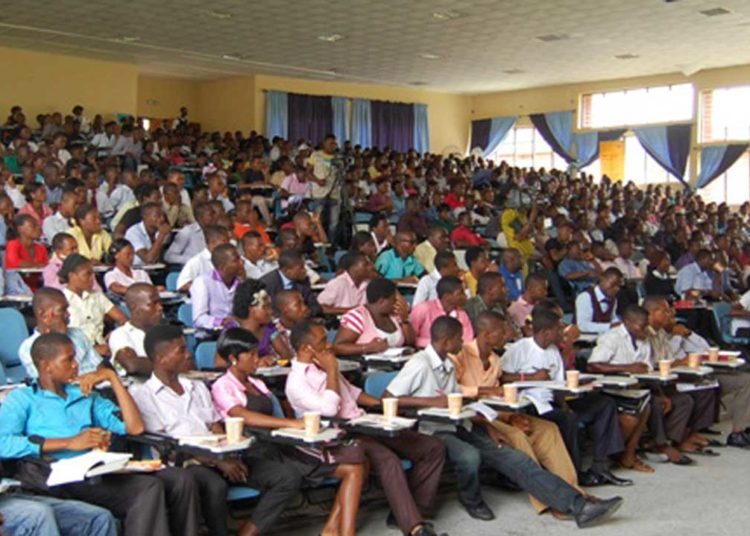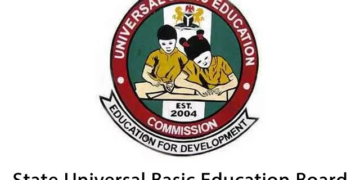Research in higher education shows that learning is deeper, more sustainable and satisfying when students become responsible partners in the learning process.
Involving students actively in assessment processes, by giving them regular opportunities to make assessment judgments about their own work and the work of others has been attributed to be the most powerful way to achieving best practices.
However, experts have lamented that educational assessment today is seriously infested with different types of corrupt practices, as examination malpractices have become a household name in Nigeria and world over.
They opined that if our educational assessment is valid, trustworthy and free of malpractices, it will assess the academic achievement of learners in an excellent and effective method.
They also regretted that our educational assessment system is infected with misconducts or wrongdoings, hence a rising wave of examination malpractices among the students, thereby posing a big challenge to our present contemporary society.
Professor of Measurement and Evaluation, department of Educational Foundations and Dean of Education, National Open University of Nigeria (NOUN), Prof. Uchenna Osuji said Nigeria requires a new learning system which is characterized by new forms of assessment, investments and fit for purpose infrastructure.
While presenting the 20th Inaugural Lecture series of the university with the theme, ”Assessment for the Learning to Learn and Life-Long Learning Societies,” Osuji urged teachers to assess learners well, stressing the need to re-engineer approaches to learning and assessment of learning.
“The future is going to witness a much larger global need for learning. As a result, we will need to organize learning and assessment differently.
“This is necessitated by globalization and new patterns of working and living which are increasing the demands for specialist skills, competences and knowledge.
“Educational assessment is no longer a true test of students’ ability. Our students are no longer serious with their studies. They no longer believe in hard work.
“Otherwise, it portends doom for our future generations and society. This is because wrong data generated there from will lead to wrong judgments and decisions which will negatively affect the learners, teachers, the educational system as a whole and the society in general. Our educational assessments have been rendered invalid, unreliable, ineffective and resulting in decisions and outcomes which are questionable.
“The effects are worrisome and enormous. Some of them are the failure on job performance resulting in dismissals laminations, loss of positions and self-confidence, irreversible loss of credibility for the nation and institutions, production of surgeons who forget scissors or towel in their patients’ stomach, or lawyers who cannot differentiate between accused and complainant.”
Others, according to him are, production of fake drugs, experiencing bank frauds, building collapse, construction of non durable roads and bridges, vitiates the credibility, validity and reliability of tests as the basic instruments of assessment in education, re-orders the value orientation of the society, leading to economic sabotage, drug trafficking, bank failure among others.
The academic don further said our society is changing continuously from an industrial age in which people could get by with the basics of the 3Rs to an information age or knowledge age in which one is required to possess the ability to access, interpret, analyse and use information for making decisions.
“Today’s students are already facing a world which is demanding new knowledge, skills and abilities. In this 21” century global economy, our students must understand the basics, but more importantly be able to think critically, analyse and make inferences.
“Therefore assessment of students’ achievement must change. Educational assessment strategies must tie assessment design and context to new outcomes and purposes for assessment.
“These changes must reflect the skills and competences required by the students to succeed in today and future workplace. Every change in assessment practices must take into consideration the context, standards, the knowledge, skills and behavior needed by the students to achieve at a very high level.
“The assessment we need therefore is that one that expects to help students to develop the skills, values and competences in real life.
“We are concerned because these instruments yield data upon which various decisions are made. We are concerned because some of these tests are shadily prepared and as such reducing their reliability and validity. The process of scoring is also not reliable. Teachers often do subjective scoring,” he said.
The professor of Measurement and Evaluation, Department of Educational Foundations, also pushed for a more robust and reliable assessment system, stating that if the assessment system is flawed and substandard, “we will be producing students with poor academic achievements at all levels of education.”
He therefore recommended that examinations should not be used as a negative and destructive assessment tool to attack and devalue the personality worth of the examinees which could invariably ruin their prospective careers.
“Assessment must not be used to perpetrate social injustice in education.
“Our educational assessment should focus on assessment for learning rather than assessment of learning. It must look forward as well as backwards.
“We need an assessment which is not only focusing to confirm and verify what the learners have learnt, but one that helps the learners to understand the next steps ahead in learning and in life. In other words, we need assessment which tries to shape what lies ahead rather than to gauge and record past achievements.
“Every educational institution should have a clear policy on assessment practices as well as the type of assessment that should be promoted or prioritised,” he added.
On his part, the Vice-Chancellor, Prof. Olufemi Peters, said the university was always poised and ready to ensure that its staff received adequate training to fill-in any inadequacies in assessment, even as he assured that the students/learners will continue to get the best from the university.











